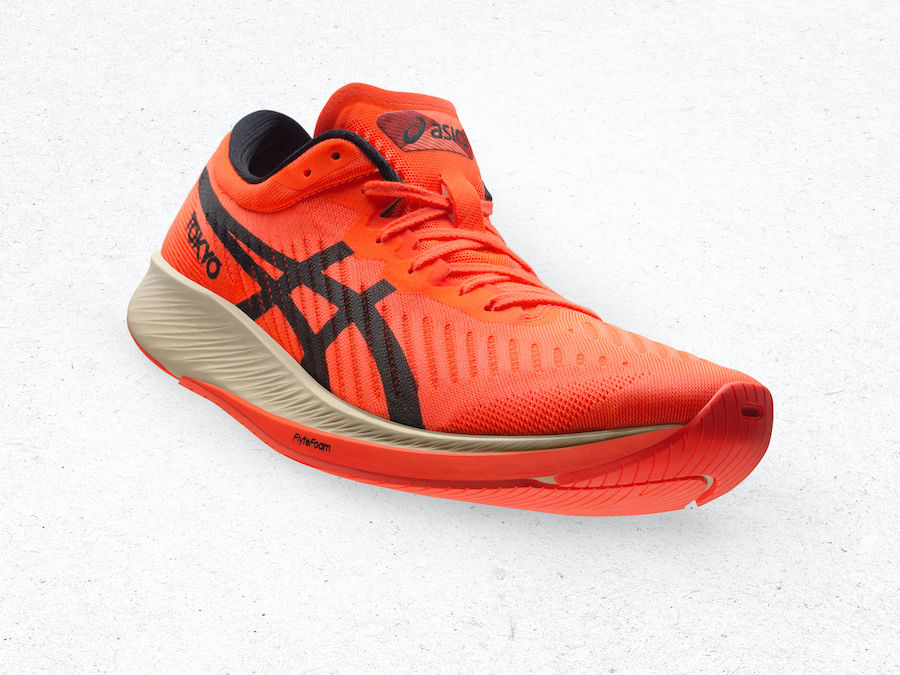
Running on air with Asics
The global coalition of companies has committed to key environmental goals in three areas: mitigating climate change, restoring biodiversity and protecting the oceans.

15th December 2020
Innovation in Textiles
|
Kobe, Japan
Sports performance brand ASICS Corporation has announced it has become the first Japanese company to join The Fashion Pact, a global environmental initiative focusing on the fashion industry.
The Fashion Pact is a global coalition of companies in the fashion and textile industries which have all committed to a common core of key environmental goals in three areas: mitigating climate change, restoring biodiversity and protecting the oceans.
The pact was created and presented to heads of state during the G7 summit in Biarritz in 2019. Initially, thirty-two signatories across luxury, retail, fashion, sports and lifestyle joined this new industry coalition and committed to collectively spearhead transformation in their respective industries. Signatories have doubled to over 60 in the year since its creation, covering multiple sectors across 14 countries, representing more than 200 brands.
Since our founding in 1949, our purpose has been to help people achieve a sound mind in a sound body. In order for people to achieve that, we need a sustainable earth
“ASICS has been focusing on climate change and announced last year the commitment to set science-based emissions reduction targets to limit global temperature rise to 1.5°C above pre-industrial levels, towards a net-zero future by 2050. Currently, ASICS aims to reduce greenhouse gas emissions at business locations by 38%, and by 55% per product along the supply chain by 2030,* the company says.
“Additionally, in terms of restoring biodiversity and protecting the oceans, we have made a commitment to source 100% sustainable cotton for our apparel and accessories by 2025. Additionally, we have decided to change the main material we use for our shopping bags in all directly managed stores from plastic to paper by the end of 2020 in order to eliminate single-use plastic throughout the supply chain. Where plastic remains necessary, we will switch to eco-friendly substitutes,” adds ASICS.
“Since our founding in 1949, our purpose has been to help people achieve a sound mind in a sound body. In order for people to achieve that, we need a sustainable earth,” said Yasuhito Hirota, COO and President of ASICS Corporation. “To further expand our collective action on climate change, biodiversity and ocean ecology, we would like to be part of The Fashion Pact to drive transformation in our industry through collaboration.”

ASICS is also a signatory of the UNFCCC Fashion Industry Charter for Climate Action and a founding member of the Sustainable Apparel Coalition. By joining these global initiatives, ASICS demonstrates our commitment to ensuring the fashion sector is on the path to a sustainable future.
ASICS is also proud to announce that it has received an ‘A-‘score for its latest response to the CDP’s annual Climate Change questionnaire for its actions to reduce greenhouse gas emissions and effectively address climate change. The performance scoring by CDP, not-for-profit organization that collects environmental data and runs a global disclosure system, is one of the most trusted standards among institutional investors, 515 of whom endorsed the assessment this year. ASICS says it is one of the first sporting goods manufacturer in the world to receive the A- score.
“ASICS will continue to promote sustainability in all areas of business and contribute to the realization of a sustainable society,” the company concludes.
*These goals measured on 2015 baseline. Reduction targets set to be raised in 2021.

Business intelligence for the fibre, textiles and apparel industries: technologies, innovations, markets, investments, trade policy, sourcing, strategy...
Find out more